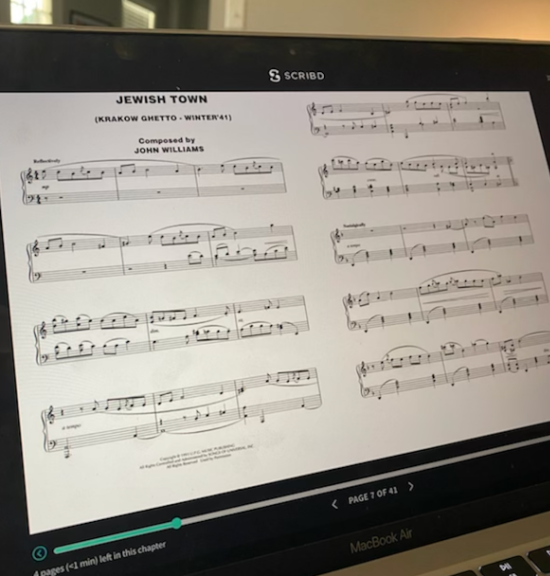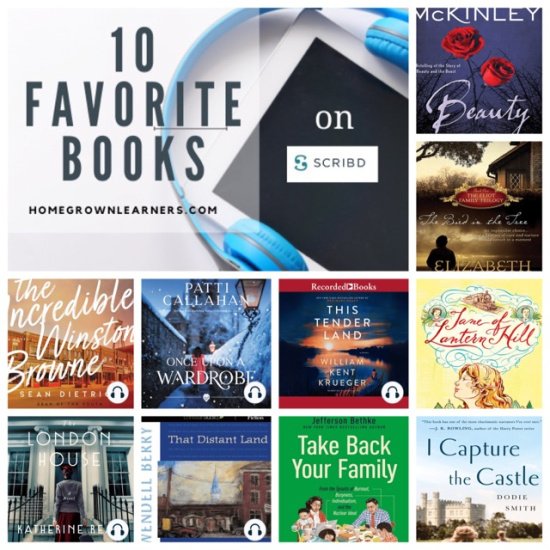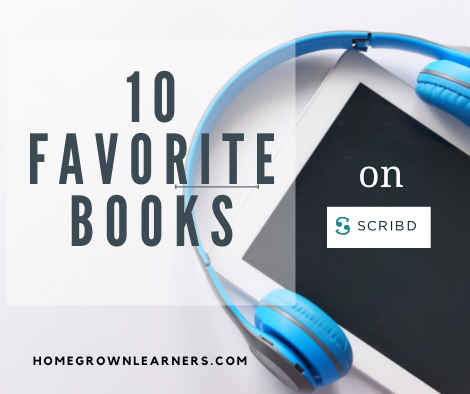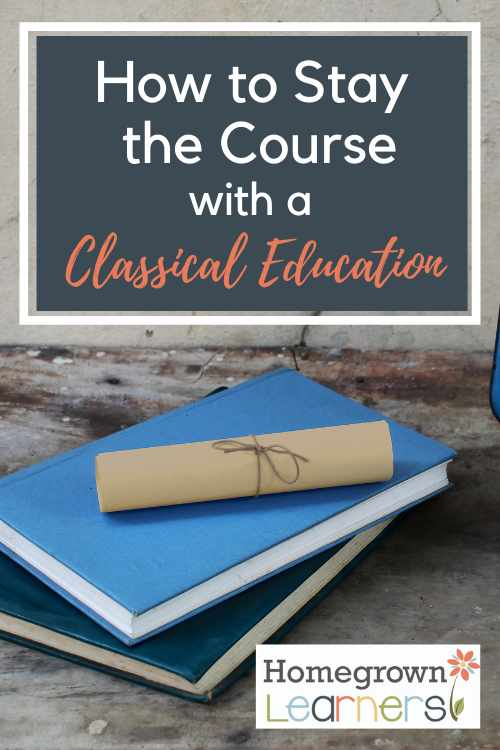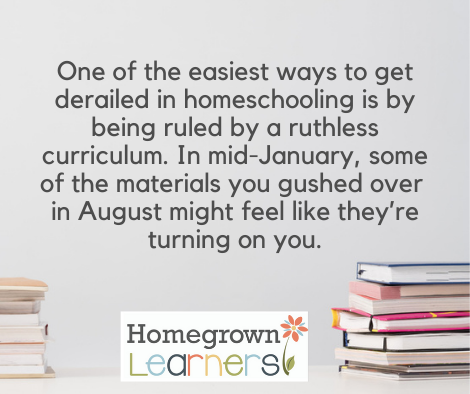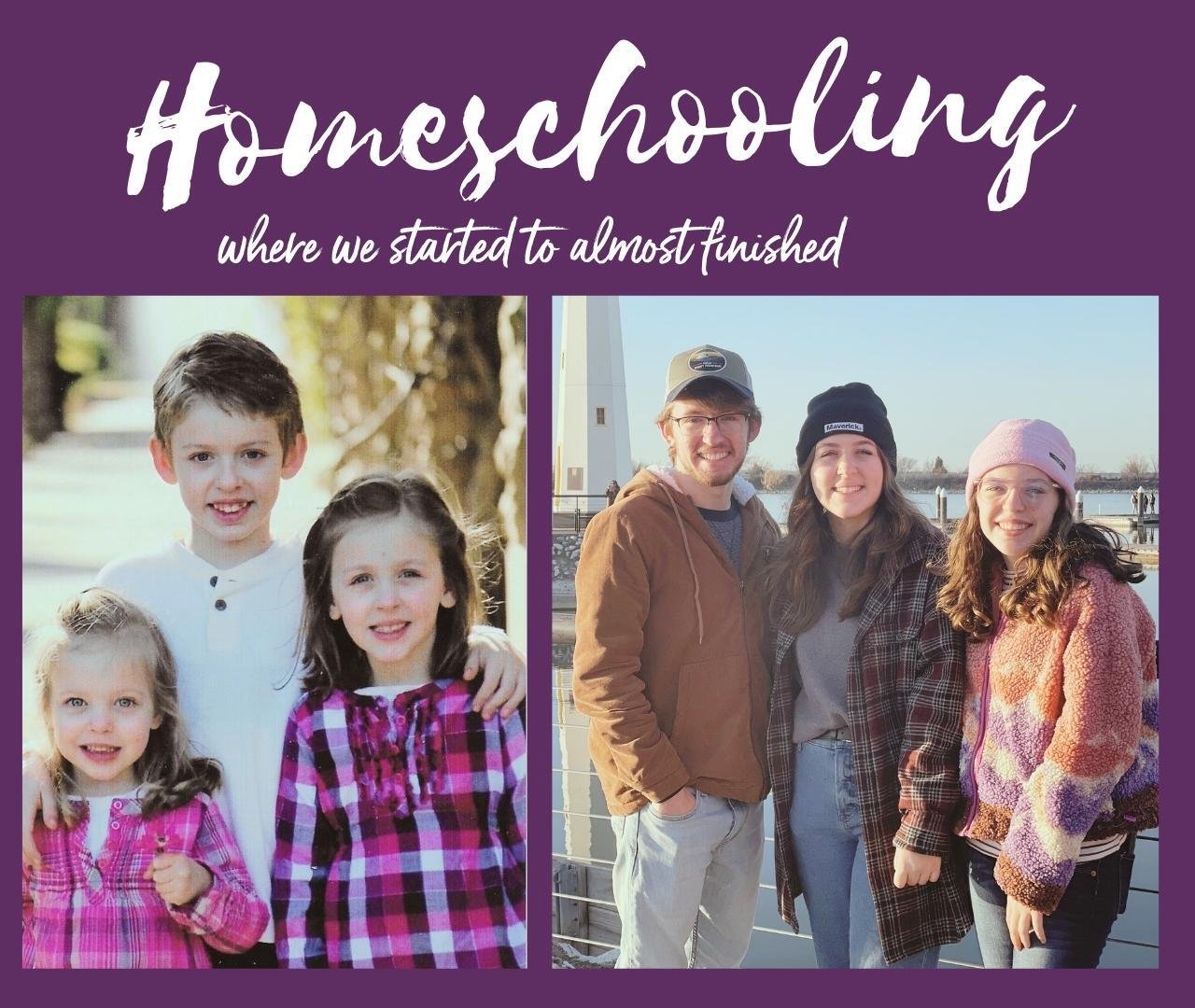Is reading a large part of your life?
Around here, reading reigns supreme. It seems like we’ve had every kind of book membership there can be - Audible, Chirp, Book of the Month… We also love our library cards and our Libby App.
I must say, however, that our favorite resource for reading is Scribd.
If you don’t know about Scribd I encourage you to look into it. For a home educating family it is an especially good investment.
What is Scribd?
Put very simply, Scribd is a way for you to access millions of ebooks, audiobooks, magazines… plus free premium services.
Read What is Scribd? if you’d like to find out exactly what it is!
Our family loves it for a few very simple (but important!) reasons:
We pay ONE price ($9.99) each month for UNLIMITED ebooks and audiobooks. You can access as many books as you want! (It isn’t like some services where you can only have one audiobook out at a time or where you have to amass “credits” for your books.)
Everyone in our family can share the account (Scribd tells you that account sharing covers up to 4 people) - and they have a generous offering of children’s/middle grades/teen books as well.
It works on IOS, Android, and Kindle Fire - I love the Scribd app on my iPad, but we also access Scribd on our Kindle Fire.
It is VERY easy to use! I love to highlight while I read and Scribd makes it very easy to do that - and then I can go back at any time and access those notes.
Scribd has SHEET MUSIC! (I am currently working on the music from Schindler’s List)
What else (besides books) comes with Scribd?
Music, podcasts, sheet music, and other documents are available through Scribd.
Additionally, there are Scribd Perks - our favorite of those is Curiosity Stream, which has thousands of science, technology, nature, and history documentaries.. This is such a valuable addition especially if you are a homeschooling family!
10 Favorite Books Available on Scribd
I looked back through my books from the past couple of years and picked out 10 favorites. I could have given you a TON more - I had to exercise great restraint in keeping the list to 10!
Beauty: a Retelling of Beauty & The Beast by Robin McKinley
This was a Young Adult retelling of Beauty & The Beast - which I enjoyed listening to on my own. It would be a wonderful read-aloud for your middle and high school children, and perfect for a study of this fairytale and the different ways it has been told over hundreds of years.
The Incredible Winston Browne by Sean Dietrich
If you don’t know about Sean Dietrich, you are missing out on a Southern gem! After I read May the Circle be Unbroken (also available on Scribd), I knew I needed to read more. HIs wit, wisdom, and gentle way of writing about times gone by in the South is comforting.
This Tender Land by William Kent Krueger
Everything William Kent Kreuger writes is wonderful. This Tender Land, which takes place in the Midwest and is about four orphans on a life-changing journey during the Great Depression. It will pull at your heartstrings. Kreuger writes with such a strong sense of place. He also a series of mysteries (the first of which is Iron Lake )that are available on Scribd.
The Bird in the Tree by Elizabeth Goudge
The British author Elizabeth Goudge, was new to me last year. The Bird in the Tree is the first in the Eliot Family Trilogy. I’ve read the second and hope to get to the third very soon! Prepare to highlight A LOT and soak in every word Elizabeth Goudge writes. There is a beautiful wisdom in this family story that I just loved.
The London House by Katherine Reay
This book was a new release last year. Katherine Reay is one of my favorite authors right now and I enjoyed the London House so much. It takes us on a journey through Britain’s WWII spy network. I learned so much history in this book and was quite caught up in the story, too!
Once Upon a Wardrobe by Patti Callahan
This was my favorite book of 2021! Once Upon a Wardrobe takes us into the world of CS Lewis and the creation of Narnia - and while it is historical fiction, Patti Callahan does a wonderful job of creating a beautiful fictitious story that is grounded in a lot of truth. A lovely letter from C.S. Lewis’ son at the end of the book ties it all up with a beautiful bow.
Jane of Lantern Hill by L.M. Montgomery
What can I say? The first sentence of the book is indicative of the beautiful writing that continues throughout!
“Gay street, so Jane always thought, did not live up to its name. It was, she felt certain, the most melancholy street in Toronto...though, to be sure, she had not seen a great many of the Toronto streets in her circumscribed comings and goings of eleven years.”
I needed something sweet and reassuring last year when my father was in hospice, and this book provided that.
I Capture the Castle by Dodie Smith
In my quest to read more classics, I Capture the Castle was recommended to me. DId you know that Dodie Smith also wrote 101 Dalmations? (Well, this book is nothing like that - ha! I read an article that said, “Once you read it, you fall in love with it, and from then on you’re part of a secret club, self-selecting and wildly enthusiastic.”
That Distant Land by Wendell Berry
I am a HUGE Wendell Berry fan. Hannah Coulter is one of my all-time favorite books. That Distant Land includes all of Wendell Berry’s short stories published up until 2004, so it gives you a wonderful introduction to the author in bite-size pieces. I listened to this and enjoyed the short stories that helped build my attention for audiobooks.
Take Back Your Family by Jefferson Bethke
My husband (who probably uses Scribd even more than me!) recommended I read Take Back Your Family. It offers ideas on how to build a healthy family and create a lasting legacy. I’ve recommended this book to several people who have all agreed that after reading it they’ve thought about it for a long time.
Try Scribd Free!
I love that you can give Scribd a try for 30 days.
After your 30 day trial you can join for just $9.99/month and cancel at any time.
*Full disclosure: Homegrown Learners receives free Scribd time whenever someone subscribes.


